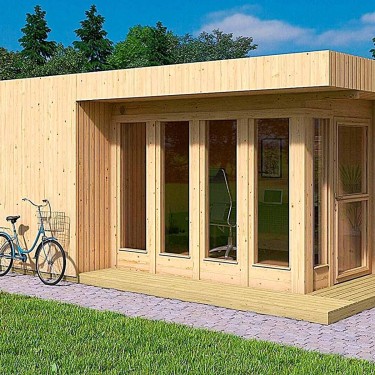Building a home provides plenty of opportunities to DIY, but some projects are better left to the pros. Here's what you can DIY and what you really shouldn't.
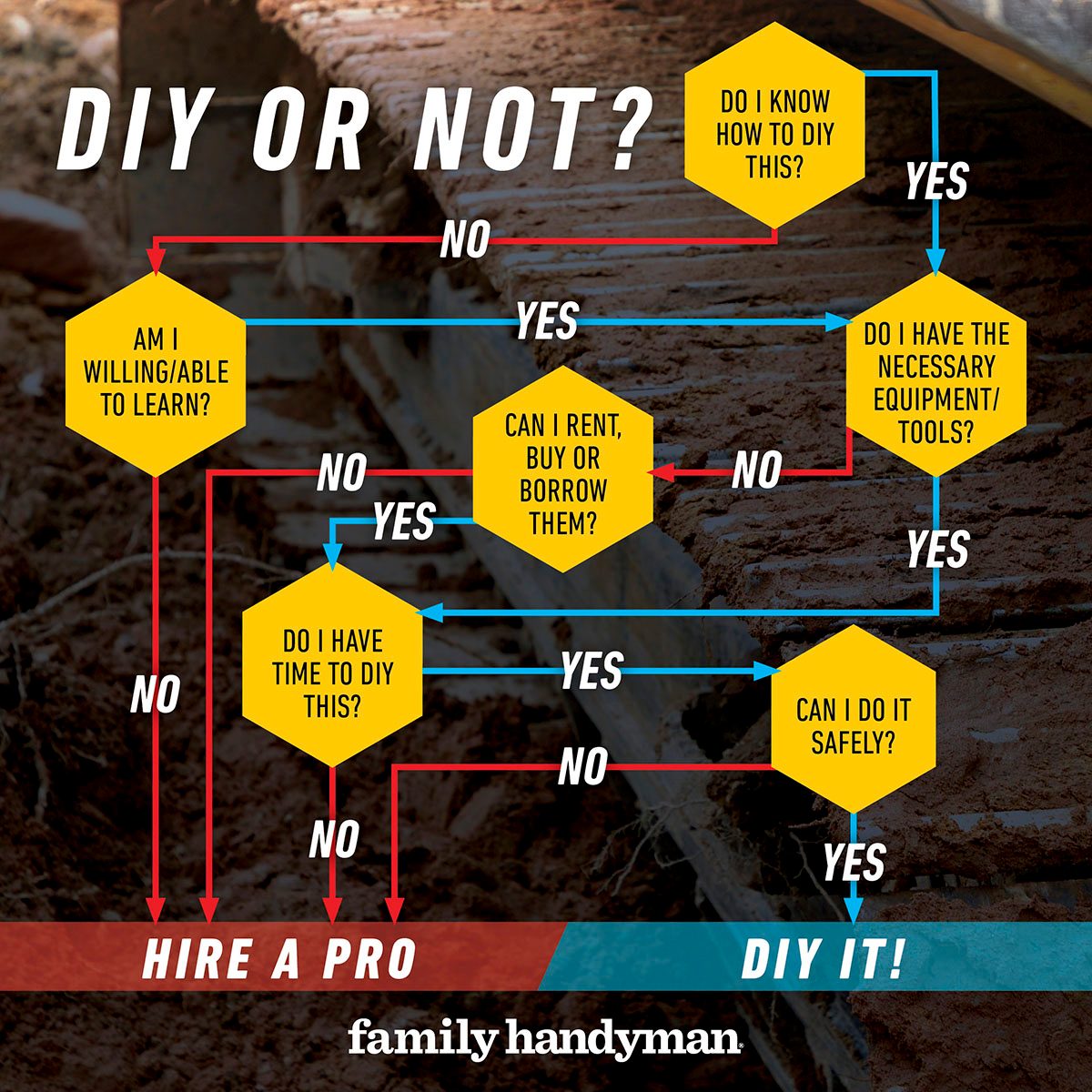
The projects you do yourself will save you money while taking more of your time. But think carefully about how much you enjoy the DIY process compared to time you can spend enjoying your Getaway.
If it’s a project you can do well or have time to learn, then do it yourself. You shouldn’t jump into projects requiring expensive equipment you don’t own or special skills you don’t have, especially if there’s a safety issue. We’ll share our thoughts on the question of DIY Or Not in chronological order of the build.
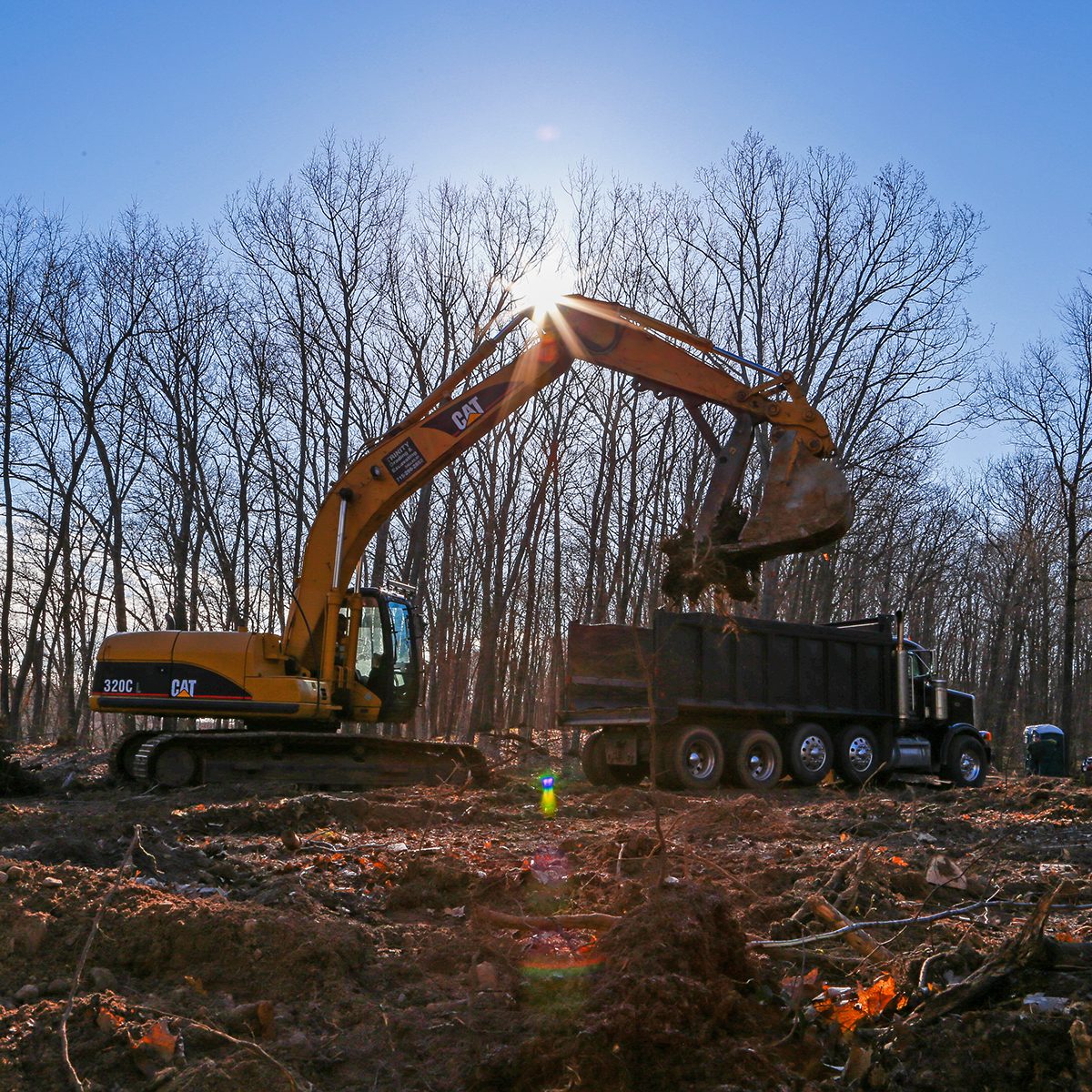
Site Prep: No
You can do some of this work yourself; we did. But not much. We cut down a few trees and watched our excavator, Irv, pull the stumps and roots. Irv’s tool? A 20-ton Caterpillar excavator; even a used one runs $60,000.
We installed the silt fence to help with erosion control, but Irv and his Cat dug most of the trench. Pros like Irv can handle most of the site preparation far more quickly and easily than a DIYer.
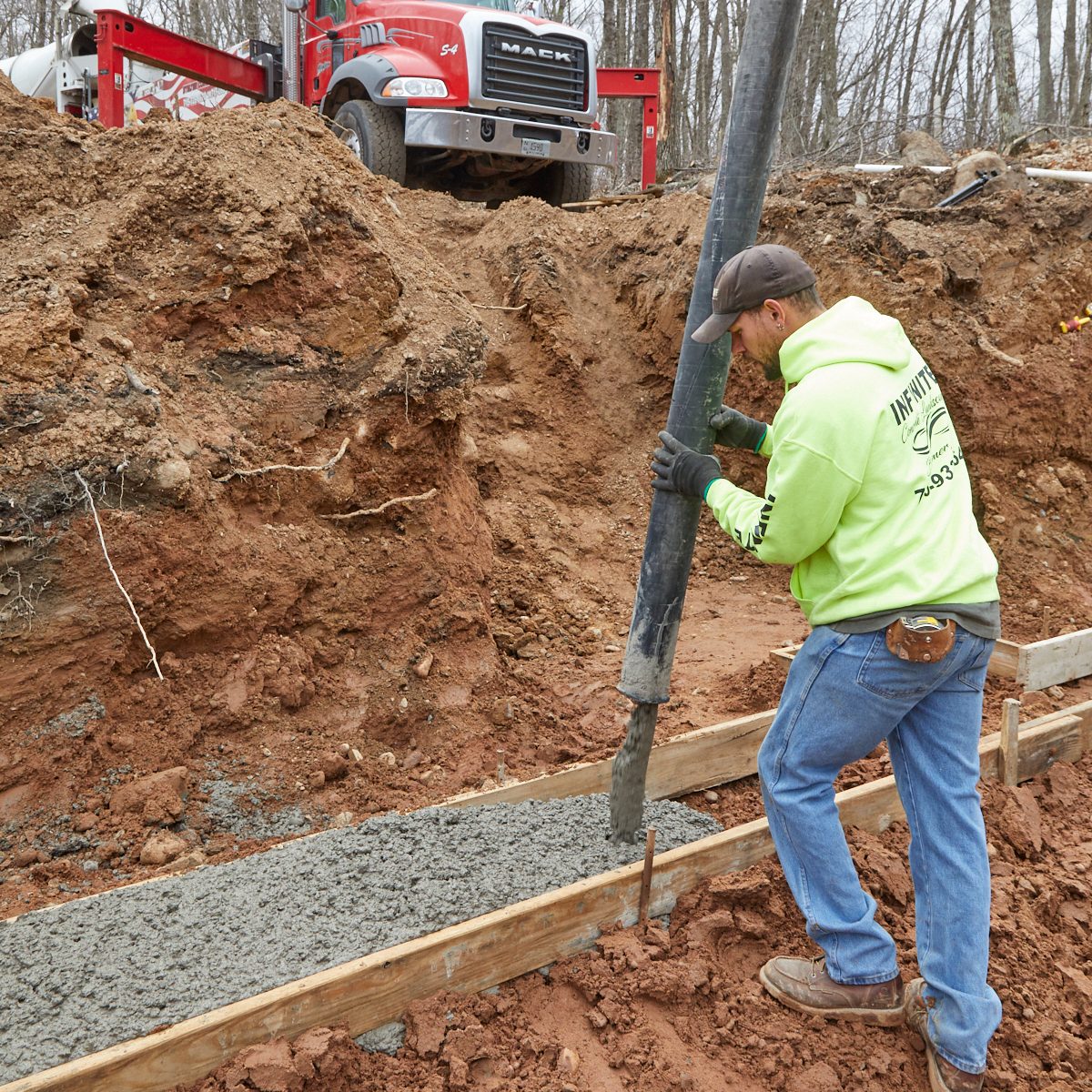
Foundation and Basement: No
Digging the foundation and building the basement is not a DIY job. Not even close. Digging, shaping, positioning and leveling for the foundation involves massive muscle (that Caterpillar) and engineering detail. Hire local pros.
The basement — ours was poured concrete — is another call-on-a-pro project. A well-built foundation and basement walls support the entire house and make the rest of the build go smoothly. It has to be done right.
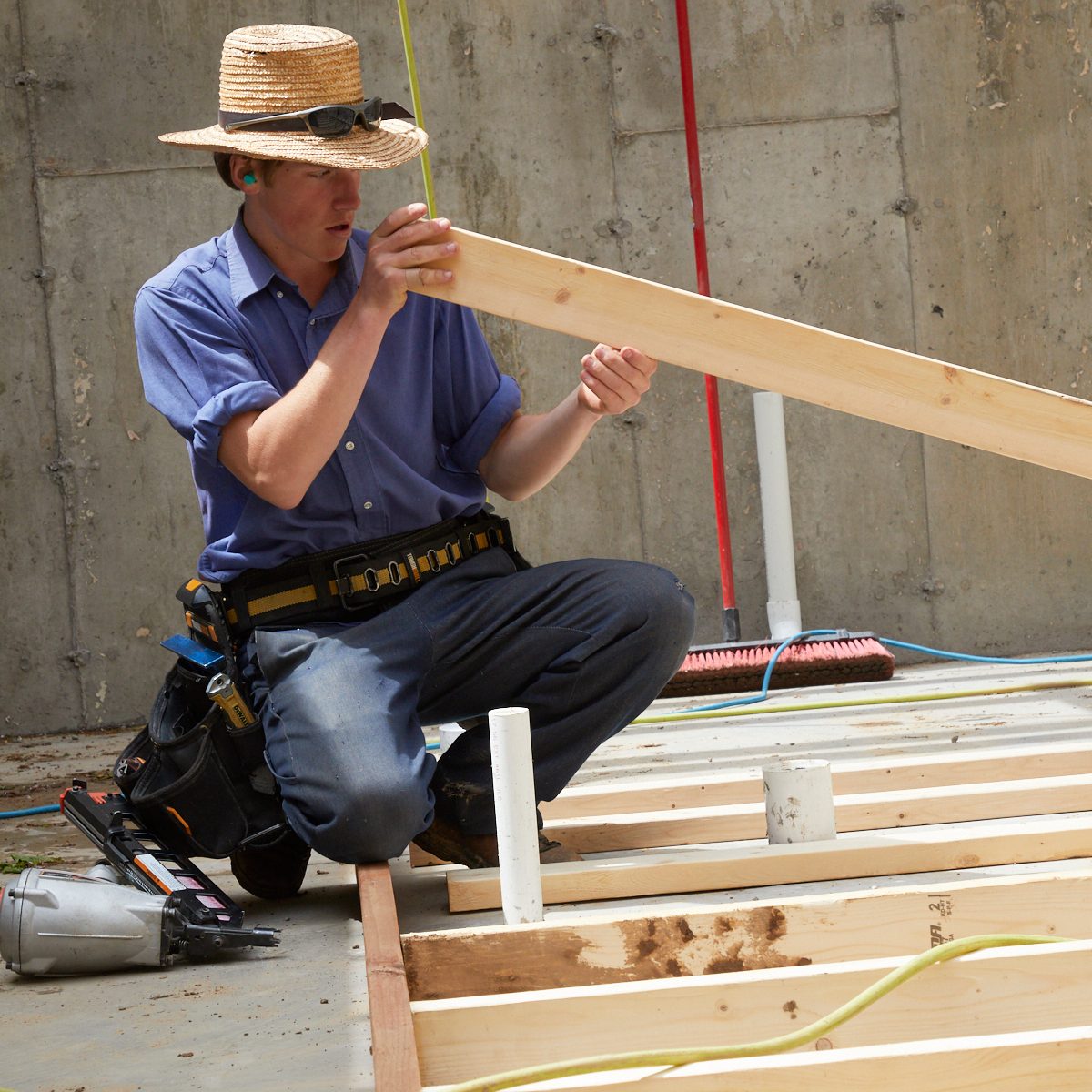
Framing: Yes
Whether using hand tools or power tools, screws or nails, framing walls can be a DIY project. We did rely on pros with heavy equipment to position our floor trusses and the large laminated veneer lumber (LVL) spans we used overhead. Read our plan to see how we saved lumber and money.
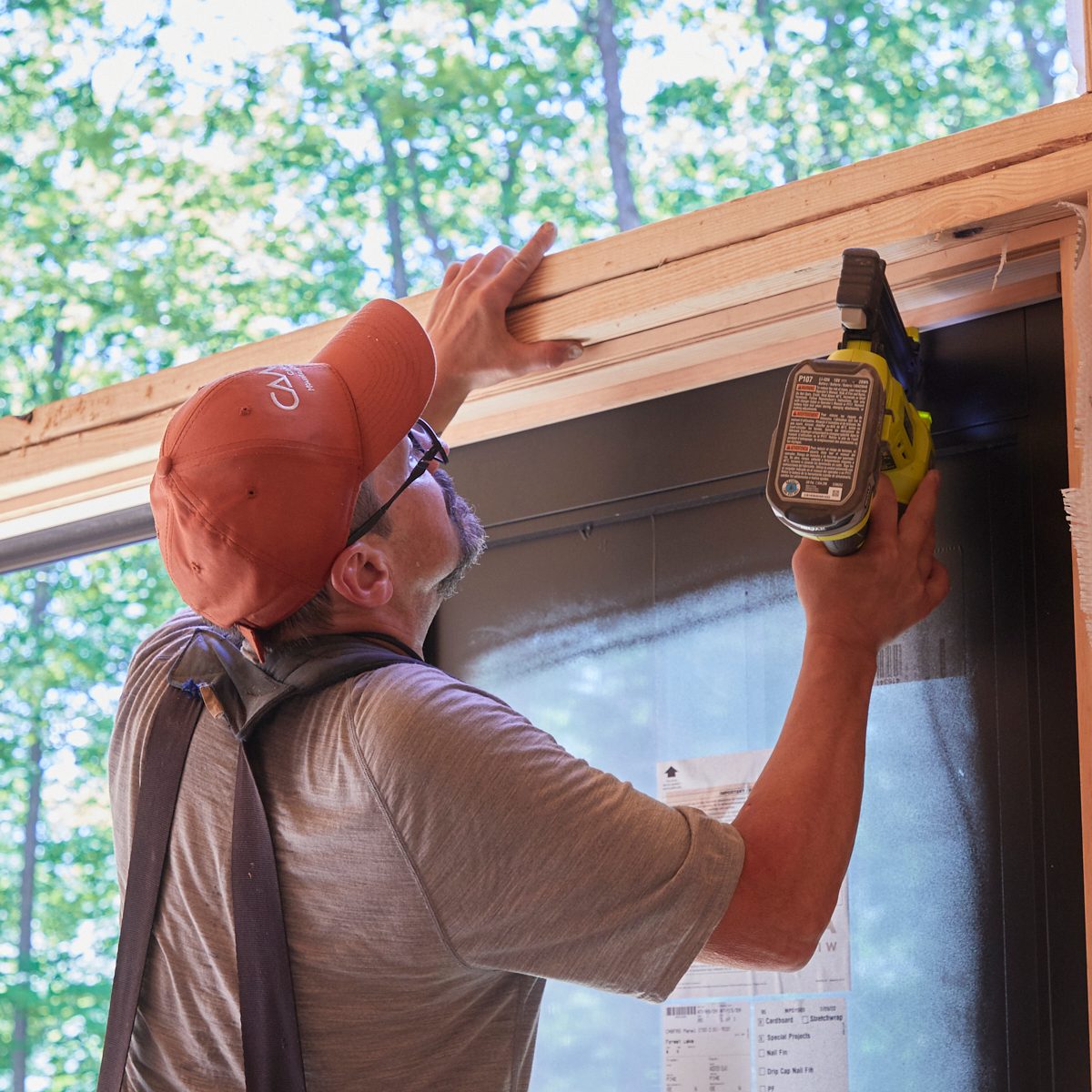
Windows: Yes
Our Getaway has a lot of windows, some tall, others high. The work does require careful planning, from purchase through installation, as well as muscle.
We’ve installed windows before; it’s manageable work requiring no special tools. And since we managed the framing, we knew the window openings were right. Here’s what to consider when choosing windows.
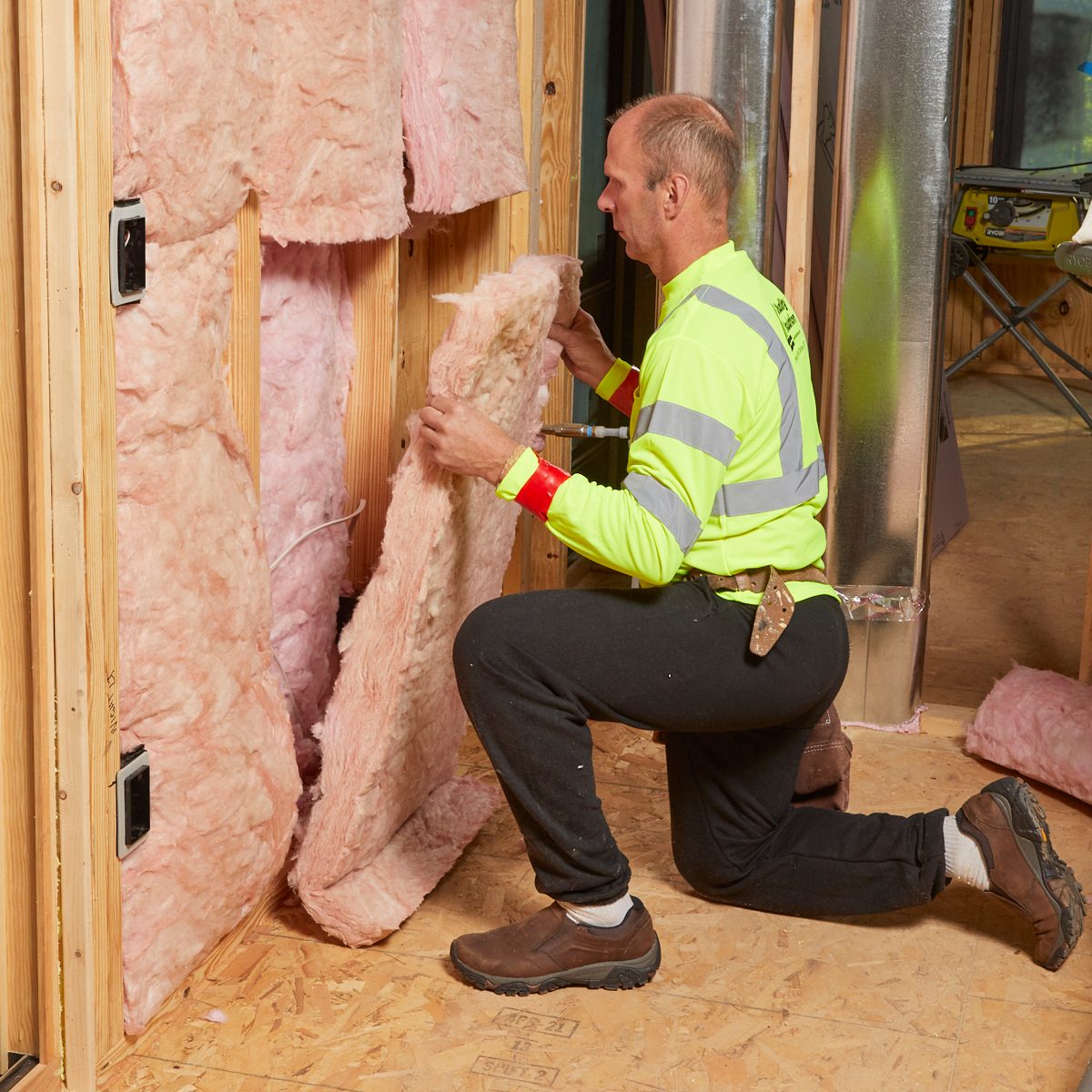
Insulation: Yes
Some of your home’s insulation needs you can do yourself. First, be sure you have a thorough understanding of all insulation material, what is going where and why. We determined our needs and desires for insulation in our walls and roof, and we learned a few things about the R-value of building materials.
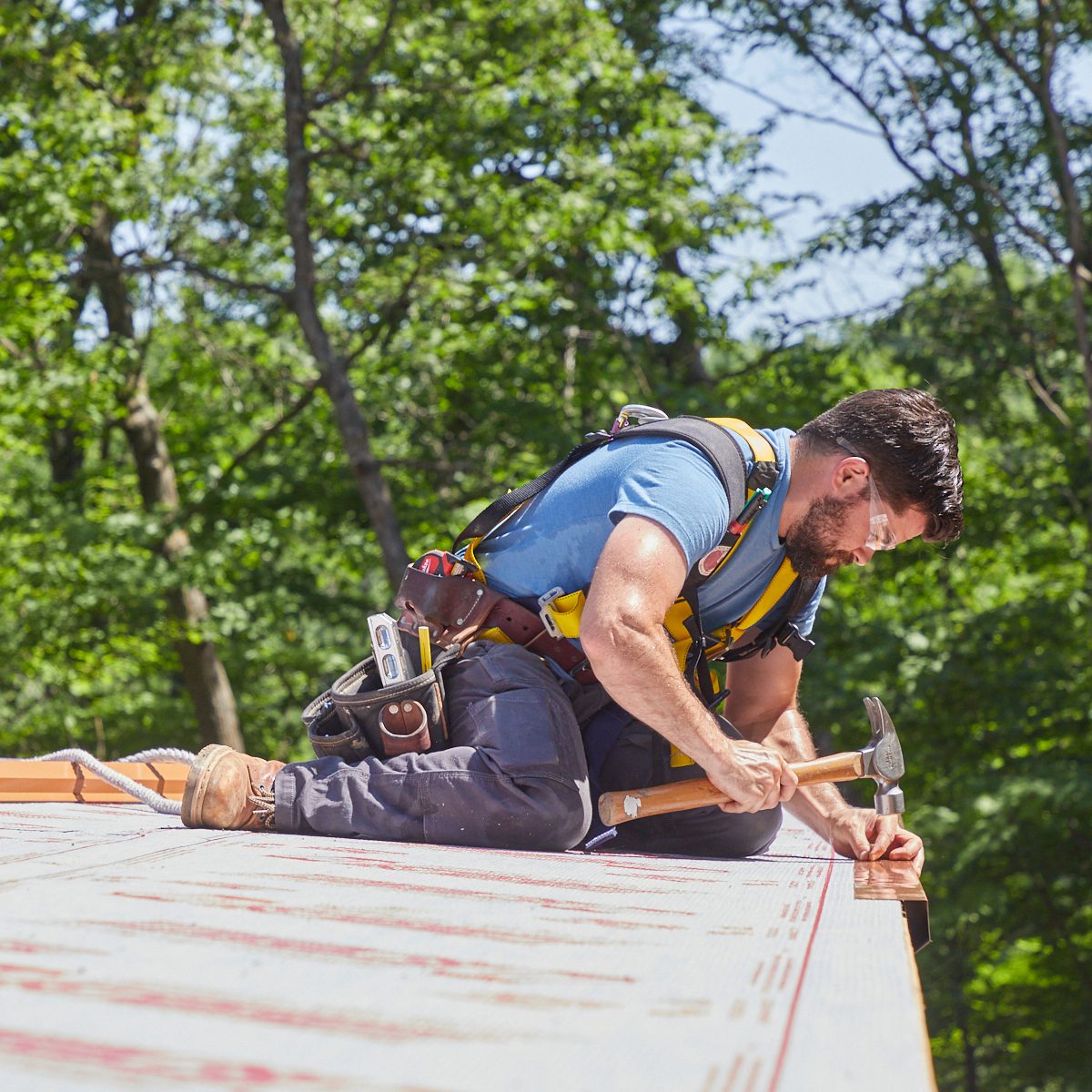
Roofing: Maybe
Most roofing work, especially on a two-story house, is pro-level territory. The roof on our one-story Getaway has a pitch of 2/12, and that’s relatively flat. If you can do it safely, you can do this yourself; we’re glad we did. We learned a good deal about metal roofing materials, which are perfect for our wooded lakeside retreat. And we saved money.
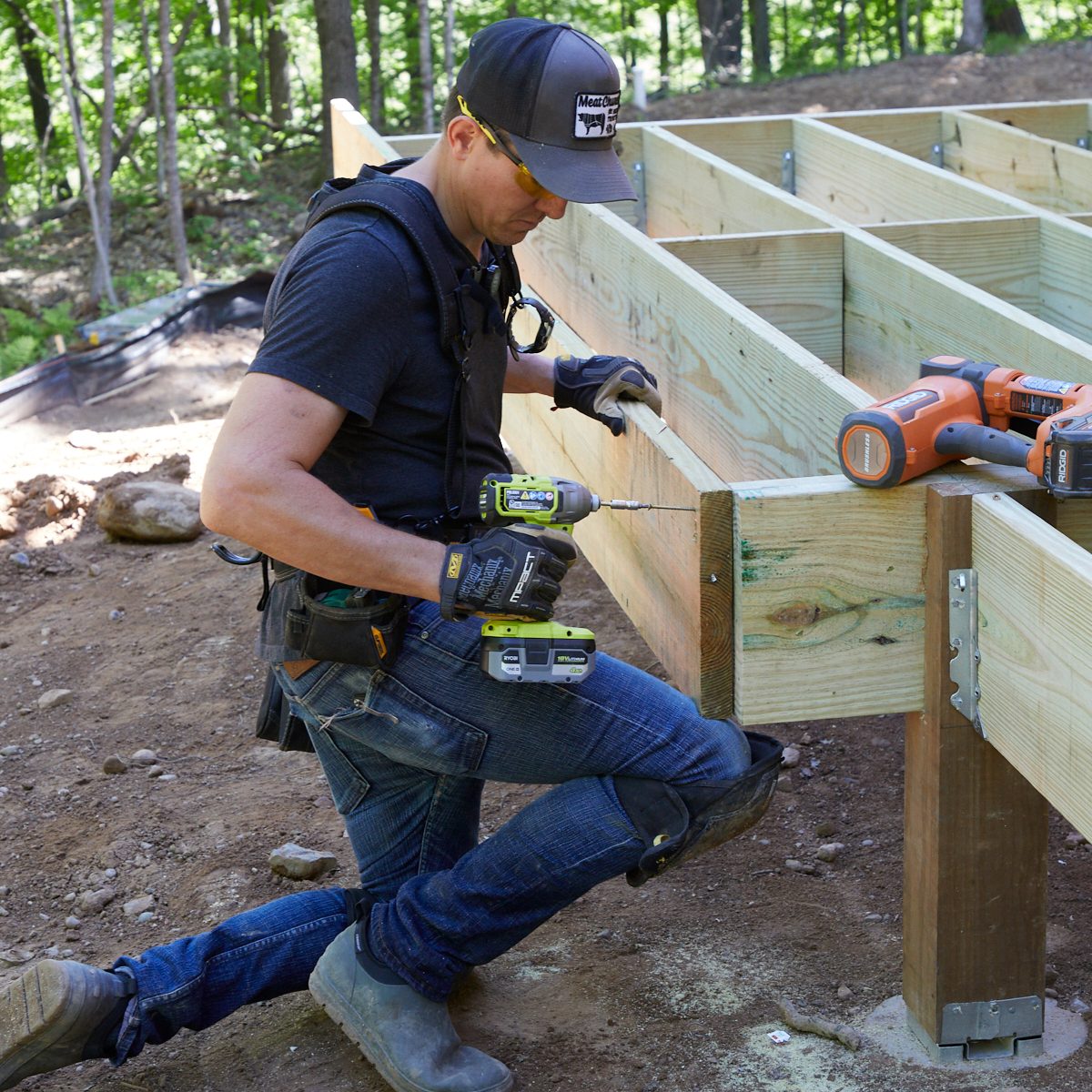
Deck: Yes
If you’re a regular visitor, you know that we know decks. This is a DIY home run for us; it can be for you, too. We dug and poured the deck footings ourselves, built a massive wrap-around deck, and added a cable railing instead of standard posts and balusters. Read how we planned this one.
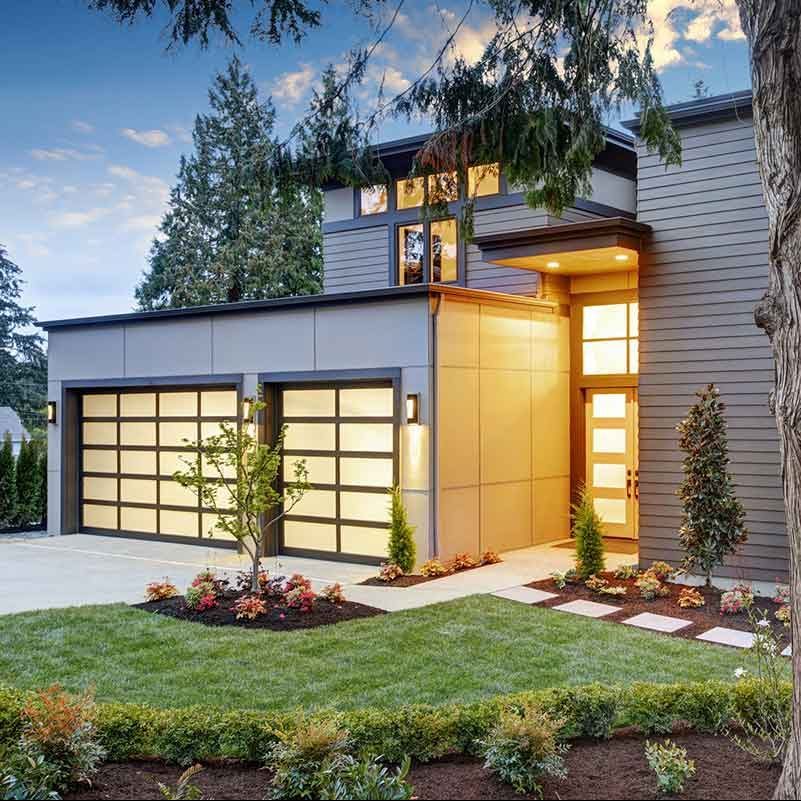
Roll-up Door: No
Our goal was to bring the outdoors in with a huge glass door like the kind you use on your garage. We don’t recommend installing a roll-up door spring as a DIY project; we left much of this work to professionals. The story about a “garage” door as part of our Getaway space is intriguing, with DIY elements and creative design options.
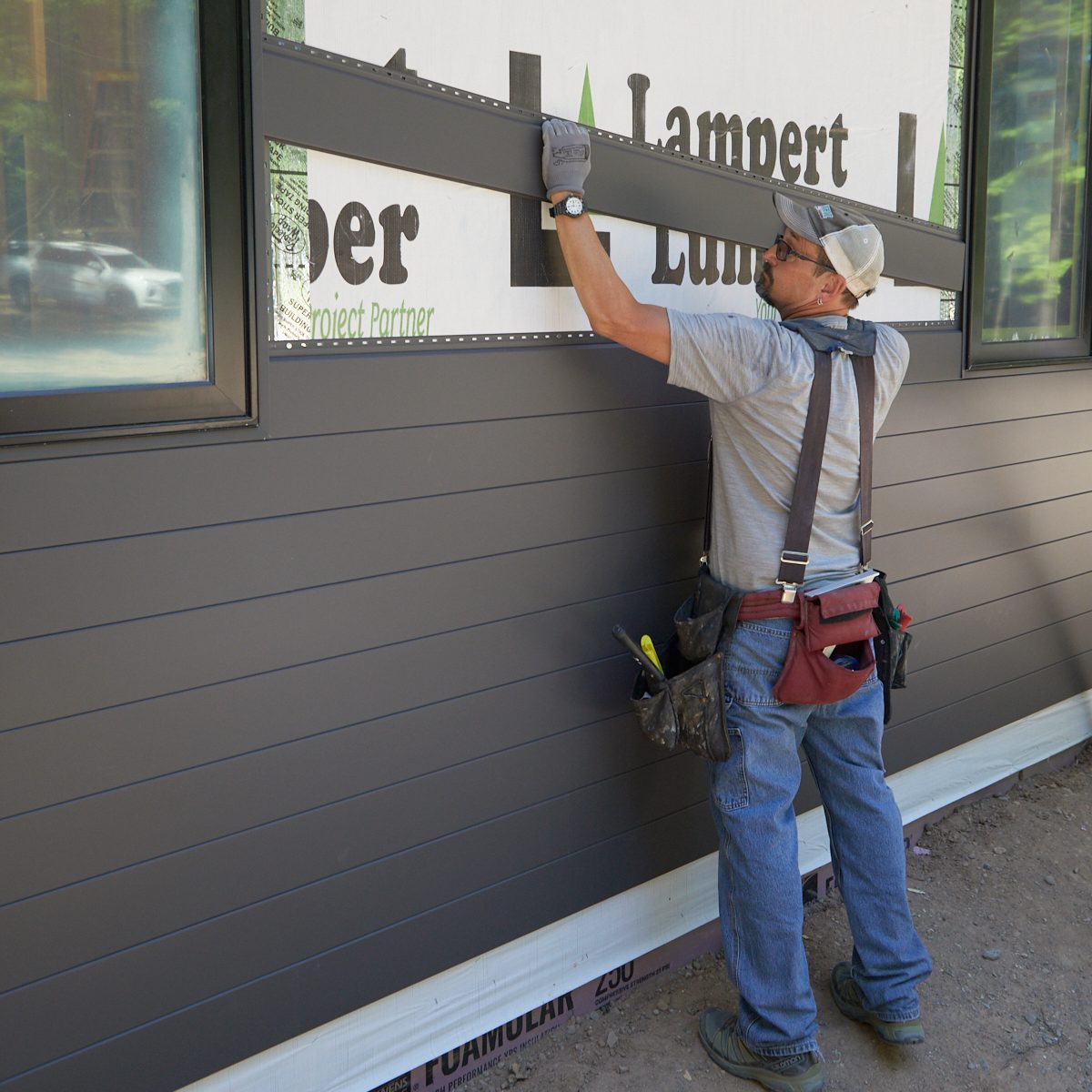
Siding: Maybe
Installing metal siding requires intermediate to advanced DIY skills, from handling the material to cutting it to the installation and finish. Ask yourself all the DIY questions about costs, tools, time, safety and your confidence working with metal, often on ladders or scaffolding.
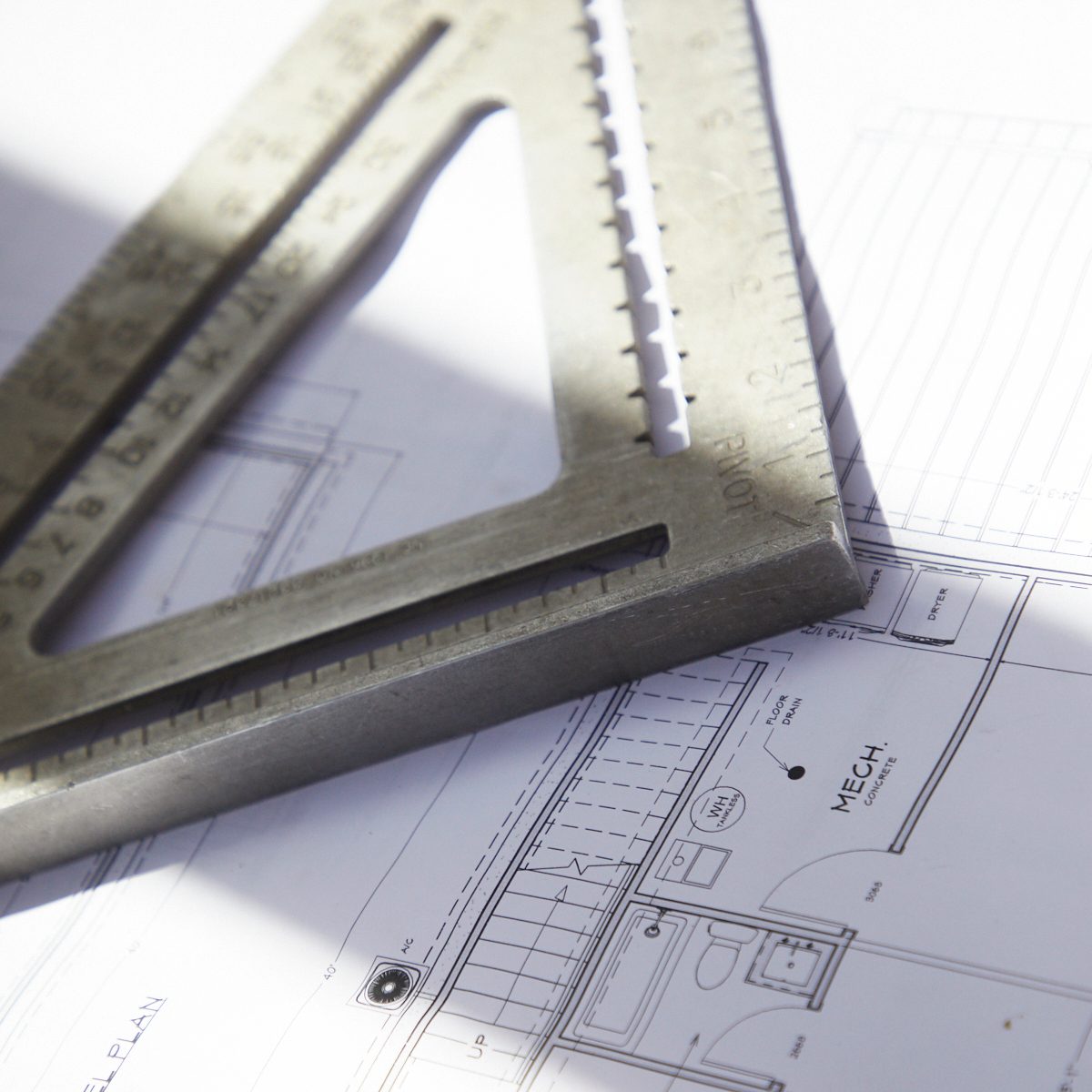
HVAC/Water Heater: No
If you’ve worked with sheet metal and ducting, you could install the furnace ductwork yourself. But it’s a big “if.” And consider you’ll have to work safely with the necessary energy source, too. Our water heater required basic construction skills to secure it and plumbing know-how to connect it. We let the same pro team do both jobs.
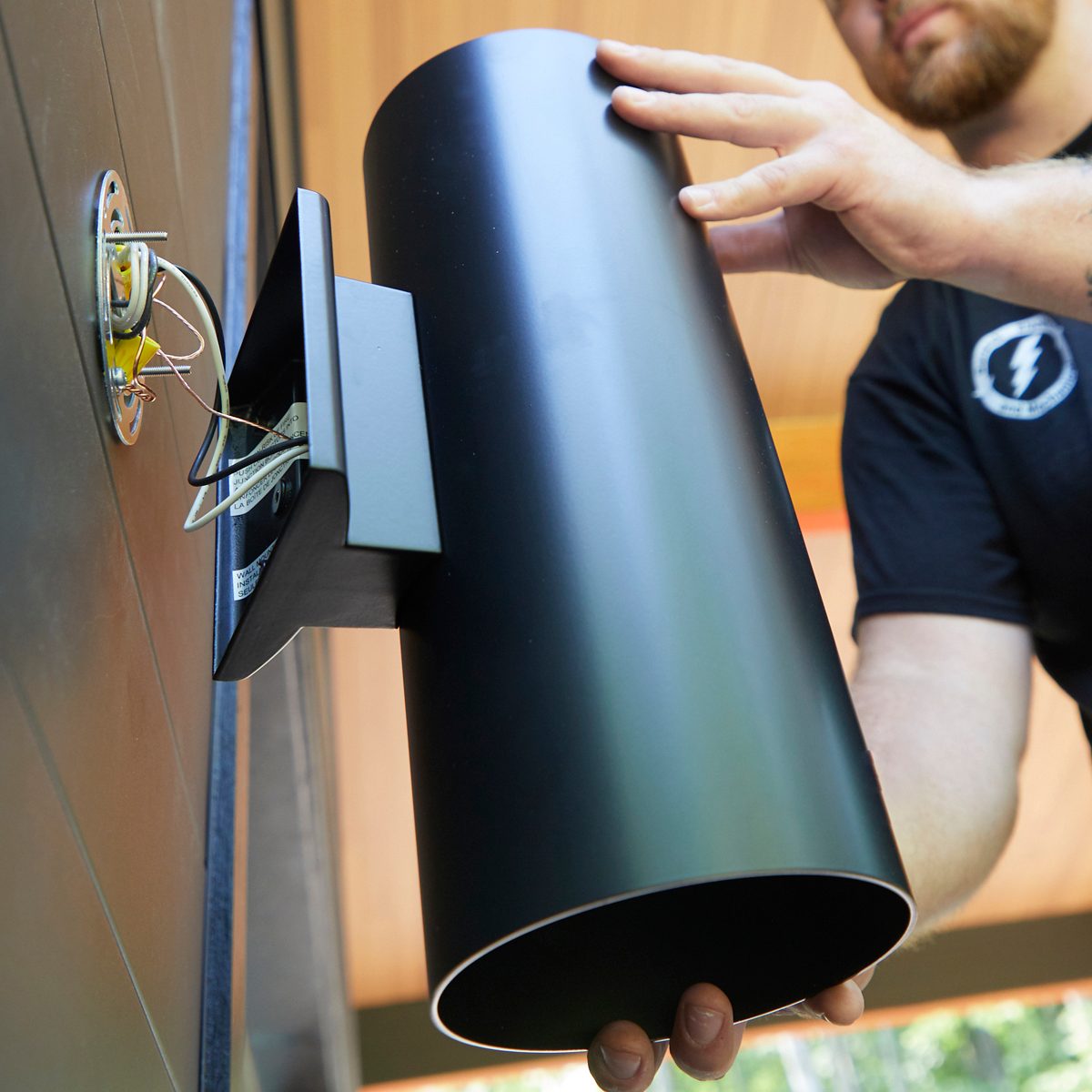
Lighting: Maybe
We’re not talking about wiring your house. For most people, that’s not a DIY project. This is about lighting design for each room and installing the lights yourself. If you have that skill and want to experiment with lighting, our story will help you.
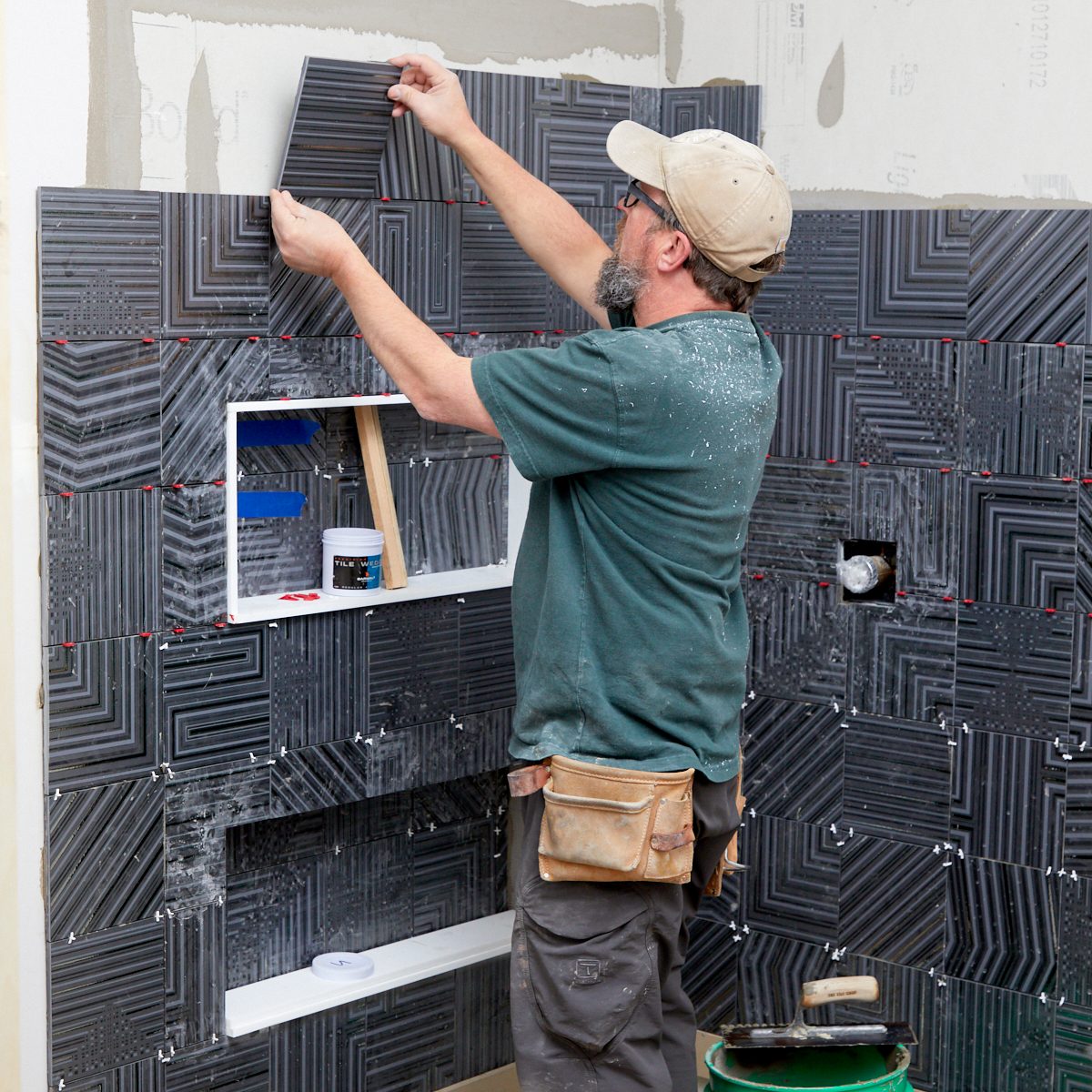
Bathroom: Yes
For a bathroom project you will encounter almost every aspect of indoor DIY work. You can do some or all of this yourself. Do you enjoy tile work but not plumbing? You got it. Do you want to build a vanity cabinet but not wire in the lighting? No problem. We focused our story on the shower with a linear drain and lovely glass doors. You can do it.
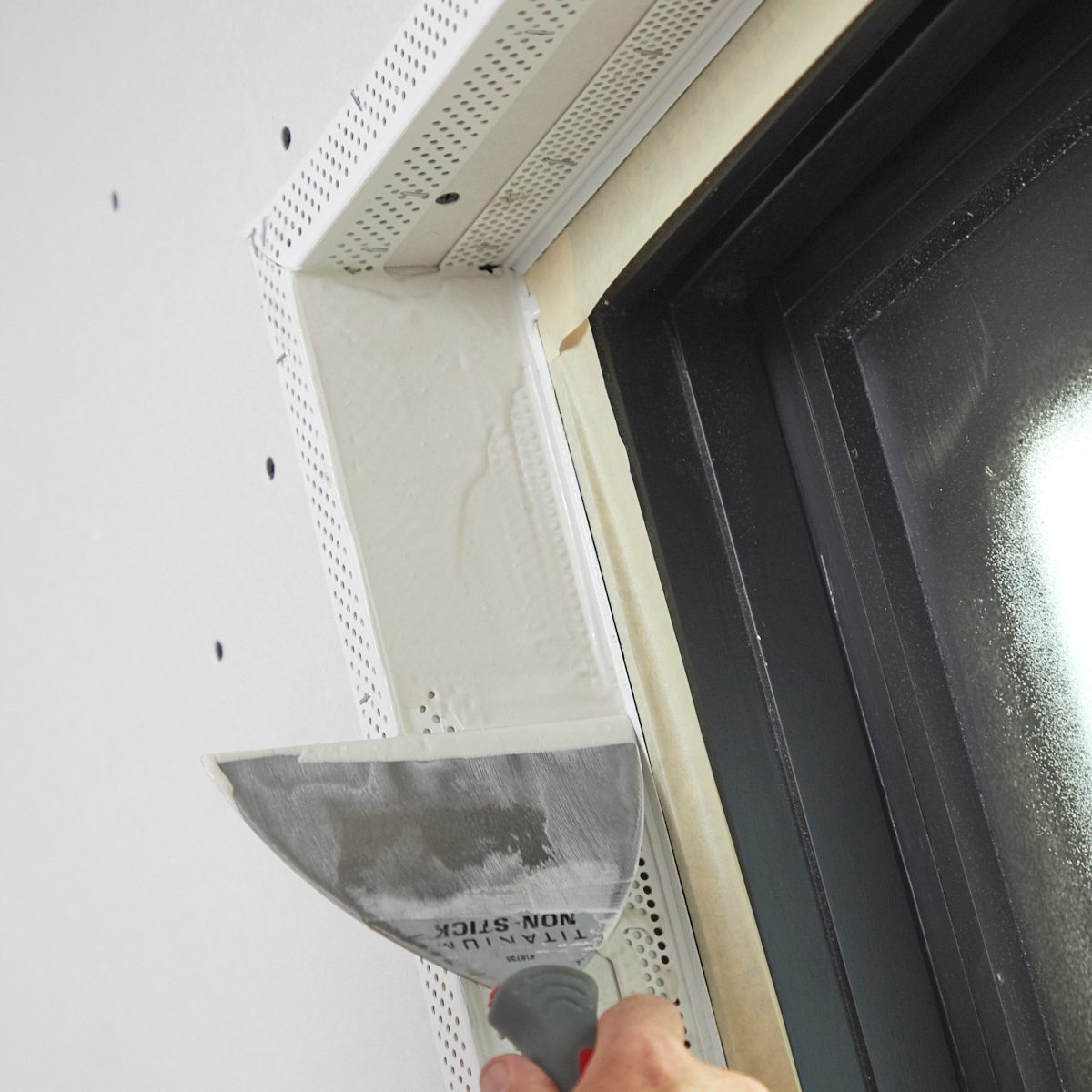
Interior Trim: Yes
Every homeowner would benefit from learning carpentry skills to install or at least repair interior trim. With a nail gun plus a table saw or circular saw, you can save big money by making trim yourself. We made our baseboard trim and we “trimmed” our windows without trim. You can do all this yourself.
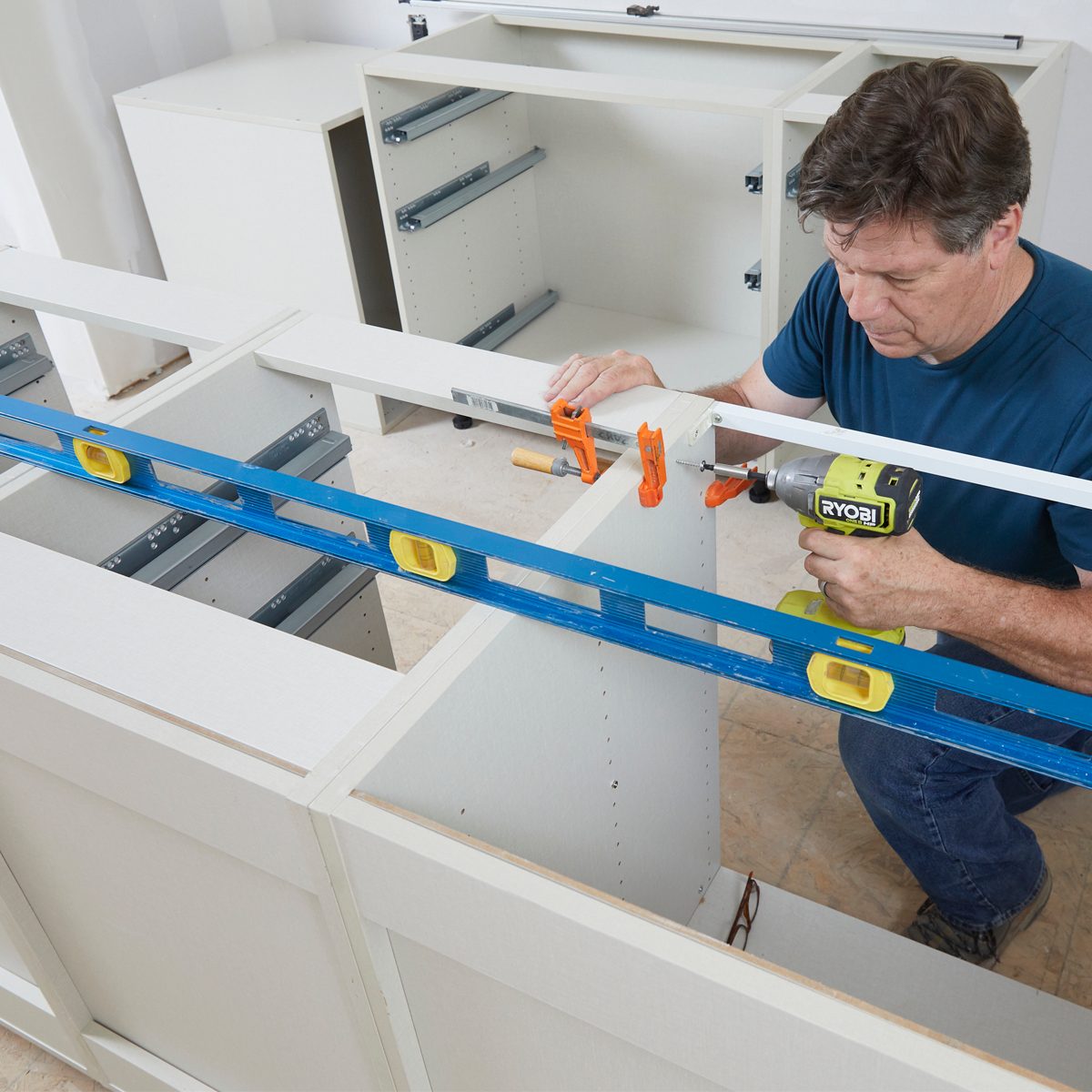
Kitchen Island, Cabinets and Countertops: Yes
This is a DIY project, especially if you want to save money like we did. We used ready-to-assemble cabinets and constructed our kitchen island. We topped it with affordable and attractive laminate counters – and we tell you how to do it.
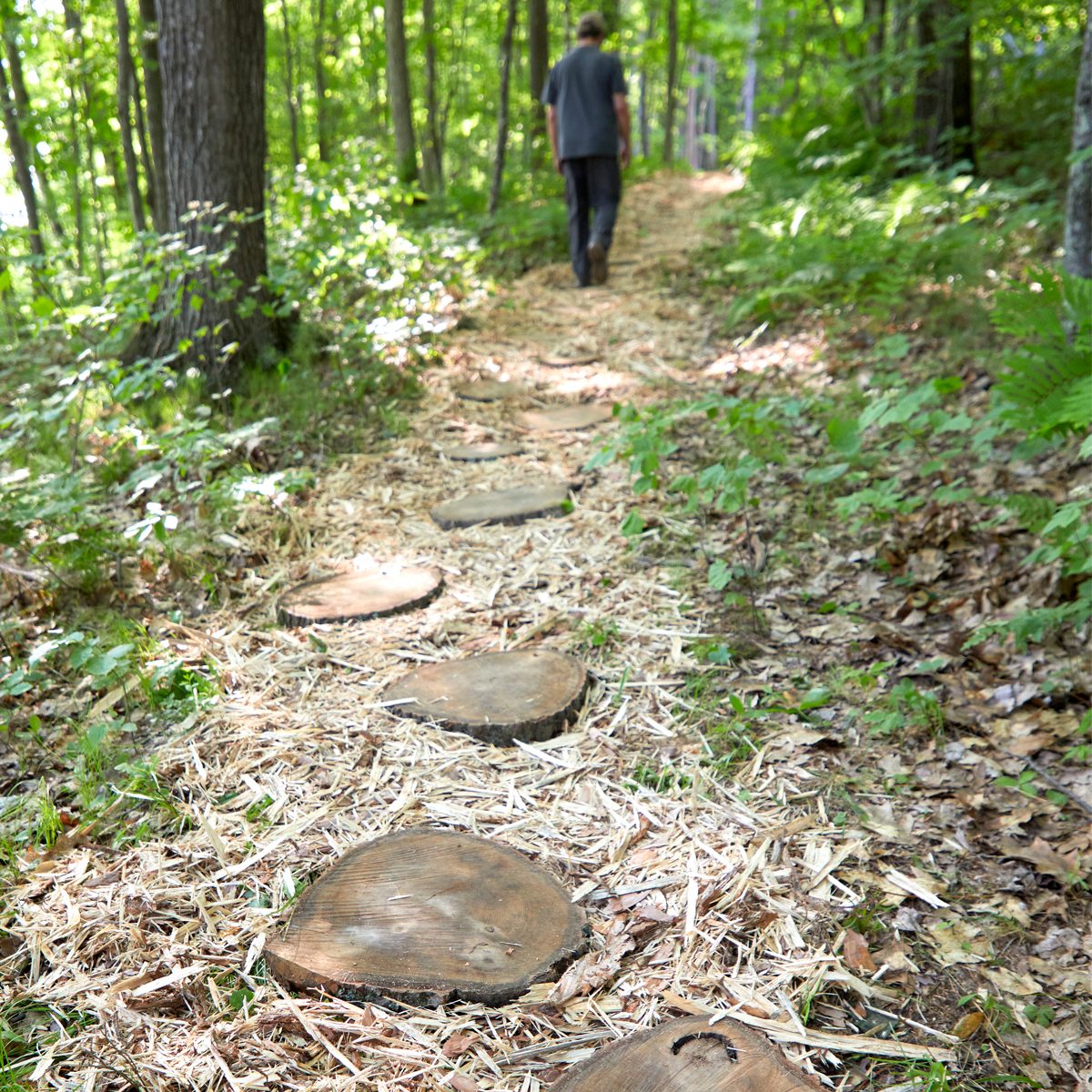
Landscaping: Maybe
If you’re running low on funds near the end of your project, save money by doing your own landscaping. Our budget tightened, but we kept three main landscape ideas: DIY, low maintenance, and recycling and reusing as many trees and rocks as we could. Read how we did it with a chain saw and wood chipper.


